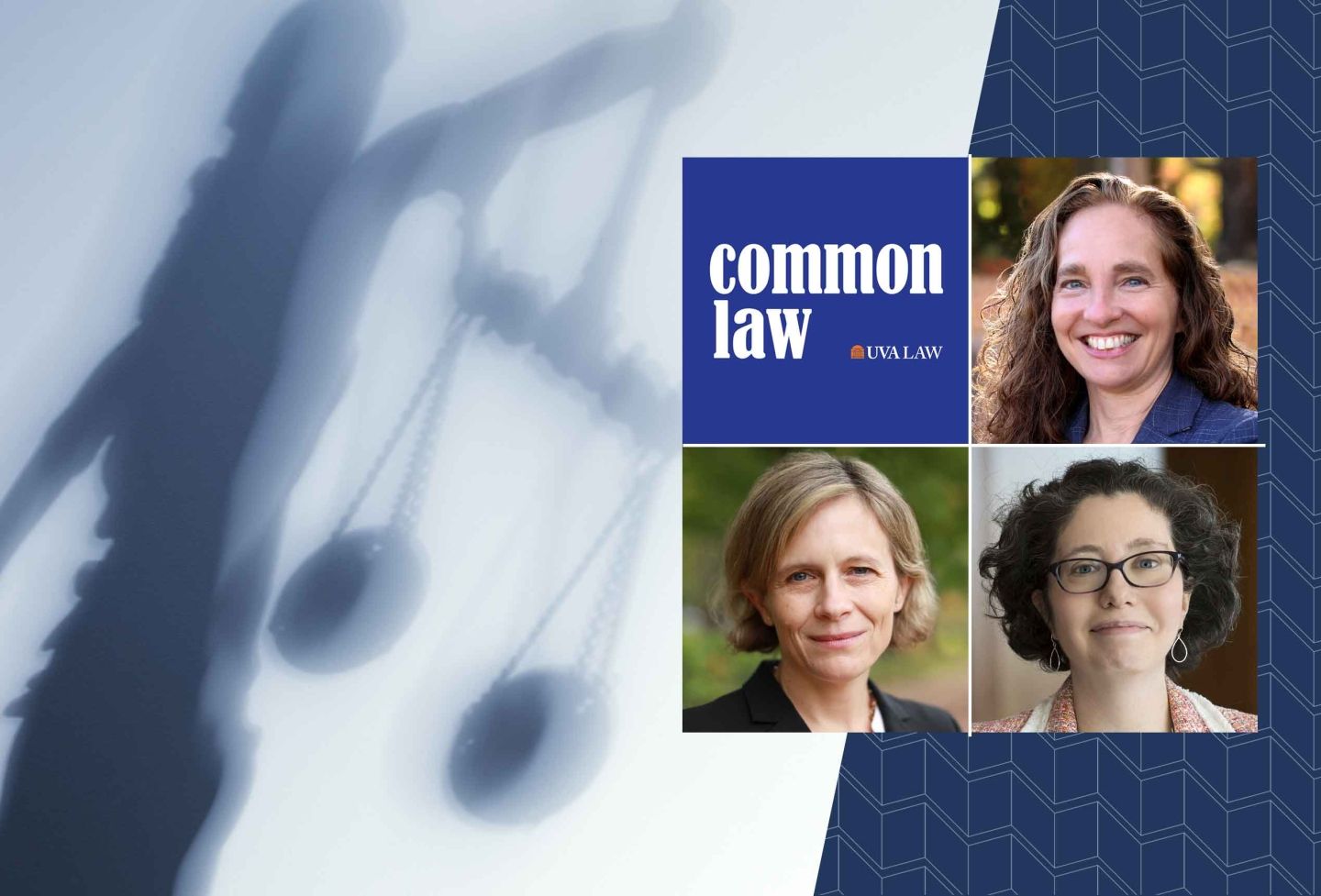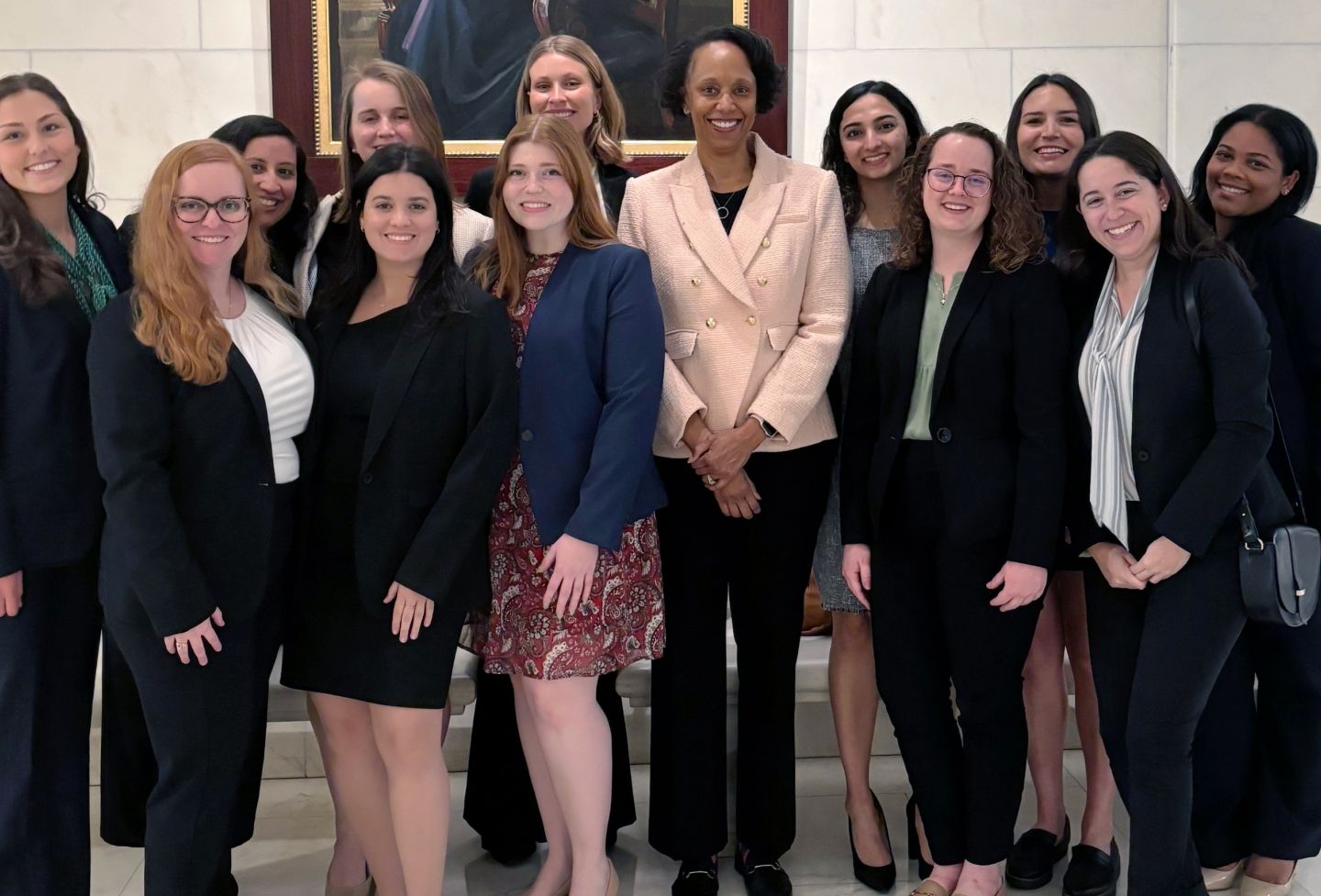Thomas Jefferson — founding father and founder of the University of Virginia and its Law School — can add one more title to his prodigious list of accomplishments.
Human resources professional.
In the first chapter of his book-in-progress on the history of legal education at the Law School, Professor Gordon Hylton details the difficulties Jefferson had in hiring the school's inaugural law professor, a position for which 12 candidates were considered.
Commissioned by the Arthur J. Morris Law Library, the book is part of a forthcoming three-volume history, which is to include a volume on architecture and one on the history of law student life.
Why was it so hard to place someone in the law professorship? Today, UVA Law would be a dream job!
In 1824, most lawyers studied law under the direction of a practitioner or else attended a practitioner-run law school. At that point, law was taught in only three colleges — William & Mary, Harvard and Kentucky’s Transylvania. Most law professors at that time were also sitting judges, so there was not necessarily a great deal of prestige to holding the professor of law position. Law teaching as a career did not really exist in 1824, when Jefferson began his search for the first law professor at UVA.
What were some of the reasons the many candidates for the position didn't work out?
Part of the problem was bad luck. The original choice, William Cooper, wasn’t willing to wait around for the University to open (which didn’t happen for six years). The next choice, Francis Gilmer, dithered over whether or not to accept the position and then died shortly after he decided to accept it. Most of the others were not interested, although two of Jefferson’s candidates were too young to be acceptable to the other members of the Board of Visitors. In some ways, the problem was also that Jefferson’s vision of an ideal law professor — a relatively young man of broad intellectual interests whose expertise was not limited to a narrow mastery of private law — was not shared by many of the members of the Board of Visitors, most of whom were prominent attorneys. Except for James Madison, many of his colleagues thought the best candidates for the position of law professor were experienced judges or practicing lawyers.
Jefferson was also adamant that the professor of law be a full-time position. As late as the 1820s, most of the men who were professors of law at American colleges were also judges or lawyers who continued their law practices while teaching. William & Mary’s George Wythe, Henry St. George Tucker and William Nelson all were sitting judges while teaching law, as was Harvard’s Isaac Parker, who was the chief justice of the Massachusetts Supreme Judicial Court. James Brown, the first professor of law at Transylvania, continued his Lexington, Kentucky-based law practice while teaching. Both Tucker and Philip Pendelton Barbour offered to accept the position, if they were allowed to remain on the bench. For Jefferson, this was unacceptable.
Why was Francis Walker Gilmer Jefferson's first choice? Why didn't he take the job?
Many of his contemporaries considered Gilmer the most exceptional man of his generation. Jefferson was clearly enamored with him, calling him “the best-educated subject we have raised since the Revolution, highly qualified in all the important branches of science, profession particularly that of law.” Many other prominent Virginians, including James Madison, John Randolph of Roanoke and William Wirt shared Jefferson’s evaluation, and Gilmer had been previously been offered the professorship of law at his alma mater, William & Mary, in 1818, when he was just 28 years old.
Gilmer was something of a dilettante, it appears, and he enjoyed being a lawyer and a man of letters in Richmond. Having grown up in Albemarle County, he appears to have considered it something of a social and intellectual backwater. He also knew that the professor’s salary, $1,500 plus part of the tuition paid by students enrolled in the school of law, was far less than he could earn as a lawyer in the state’s capital.
Did history record the "right" person, John Tayloe Lomax, to be the first law professor?
Lomax was the first professor of law at UVA to actually teach law to students. However, if “right” meant someone who conformed to Jefferson’s view of what a law professor should be, Lomax fell short. After the position had been turned down by Tucker, Barbour, Virginia judges Dabney Carr (Jefferson's nephew) and William A. G. Dade, and Wirt, and the University was entering its second year with a vacant chair in law and its founder clearly dying, it was necessary to fill the chair with someone. Lomax was a respected lawyer and an expert on real property law and chancery practice, but he fell far short of what Jefferson had been looking for. He was also apparently not a very good teacher. He attracted very few students, and when he had the chance in 1830 to take a judicial position, he jumped at it, even though the judgeship he accepted had already been slated for termination under the new Virginia constitution.
Did Lomax have any significant impact on how the law would be taught in the future?
Jefferson believed that law should be taught as a liberal art with an equal emphasis on public and private law. In his mind, constitutional law, international law, political theory and political economy should constitute at least half of the law course. Lomax pretty much ignores this, even though he appears to have been chastised by the Board of Visitors for not following Jefferson’s outline. His successor, John A. G. Davis, restored the Jeffersonian curriculum, but in the end, Lomax’s approach won out. By the mid-1840s, the primary focus of the School of Law was teaching law and legal practice skills to future lawyers.
How many candidates were in the running for the job over time?
None of the original faculty positions at the University of Virginia were advertised and there was no formal procedure by which one could apply for the position of professor of law. If the question is how many individuals were seriously considered for the position by Jefferson or the Board of Visitors, that number appears to be 12: Cooper, Gilmer, Wirt, Tucker, Barbour, Carr, Dade, William Campbell Preston, Kentucky lawyer Dabney Terrell, Virginia Attorney General William Robertson, Congressman William Cabell Rives and Lomax.
What resources did you consult to come up with such a detailed account?
Fortunately, a rich collection of early records pertaining to the founding of the University and the Law School survive. Most of these are in the various UVA libraries and a growing number of them have been digitized.
Was Jefferson as involved in hiring other UVA faculty?
Jefferson took it upon himself to recruit the inaugural faculty of the University. Except for the professorship of law, the process actually went pretty smoothly, and the first faculty members as a whole proved to be quite distinguished.
Founded in 1819, the University of Virginia School of Law is the second-oldest continuously operating law school in the nation. Consistently ranked among the top law schools, Virginia is a world-renowned training ground for distinguished lawyers and public servants, instilling in them a commitment to leadership, integrity and community service.


